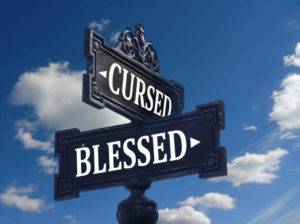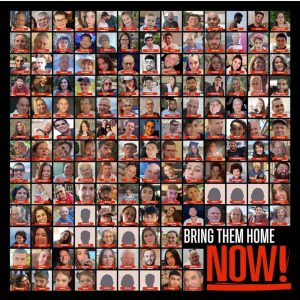The Mask and Wig Society at Penn offers an understanding of Context in the spirit of Tom Lehrer.
The Mask and Wig Society at Penn offers an understanding of Context in the spirit of Tom Lehrer.
The situation is fluid, and things are different from what we thought. We have come to an inflection point, and what happens next depends entirely on how boldly we are willing to consider acting.

It is relatively easy to kill people but almost impossible to kill an idea. Hamas has shown it knows no limit to the extent it will go to achieve the dual goals of killing Jews and eliminating Israel.
Israel thought it could manage the situation, lulling Hamas through what are essentially bribes and occasionally “mowing the lawn,” that obscene notion that periodically Israel engages in a military action to repress the militants. This is similar to blowing on the boiling pot of pasta to keep it from boiling over.
The pot boiled over, and the ensuing pogrom was devastating.
Furthermore, Hamas retains substantial control. The delay in releasing hostages on Day 2 of the truce showed their continued capacity to manage the situation psychologically. Equally distressing was the celebration in the West Bank because the jubilant welcome home to the released prisoners was met with Hamas flags instead of only Palestinian flags. A weak Palestinian Authority is losing control, and Hamas is ascendant.
And an uncontrolled group of Jewish right-wing extremists is engaging in violence against Palestinians that could only be understood as ethnic cleansing of the territory.
The situation is dire and requires bold action.
Strangely, a scene from The Godfather movie keeps running in my mind. As Don Corleone grieves his murdered son, he looks up and, from the depth of his pain, declares the killing has to stop. Peace is required even though vengeance courses through the blood. For us, this is that moment.
The killing must stop. Recognition by each side is required, and we must forge a way forward. Is Israel able to do this, and if so, who is courageous enough to make that declaration and commitment?
We’ve learned that ignoring the other side and building walls is not a solution. Walls cannot be high enough or thick enough to provide security. We also cannot do it alone.
Many are vested in maintaining the status quo of hostility, hatred, and turmoil. But others have a clear interest in seeing peace in the region. These nations need to join in the effort to work with Palestinians and Israelis to build trust and an infrastructure of hope. Together, we can realize a vision of dignity and security for both people who claim a right to the region. And those who envision a future for their children to live in a world without violence must be convinced we are all committed to their future. Building trust out of the rubble of destruction and pain that now exists will take time. But now is the time to start.
The killing must end, and now is the time to start on a path forward.
Bring Them Home Now
 We are anxiously hoping the current negotiations for the return of some kidnapped hostages will bring our people home soon.
We are anxiously hoping the current negotiations for the return of some kidnapped hostages will bring our people home soon.
It is a deal with the devil, but you do what you must do.
However, the devil is in the details, and the details are troubling.
We have been unable to get “proof of life” for all held captive. Why is this the case? Is Hamas not in control of all the hostages? If true, it does not bode well for those remaining in captivity.
Why has the Red Cross been unable to check on the welfare of the hostages? This, too, is an ominous sign that Hamas may not be in control and our people are not being treated humanely.
Why are the negotiations 3 to 1? For every Israeli returned, three people are returned to Hamas. This seems an admission, particularly by Hamas, that both sides value Israeli human life more than Palestinians’.
These issues are distressing, But the answers to these questions offer insights into how things will progress after this deal is concluded.
Let us bring home those we can and work to bring the rest back as quickly as possible.
Are you pro-Israel or not?
This is a moment of truth. Which side are you on?
I am pro-Israel. I believe in the State and its right to exist. I believe in its right to defend itself. I believe Hamas is intent on Israel’s destruction; as such, it must be treated as an irreconcilable enemy that must be fought. But this battle comes at a price.
I grieve for the suffering of the Palestinians and pray that they, too, might find peace, dignity, and self-determination with a government that serves them. And I am offended by the violence in the West Bank against Palestinians that seemingly slips under the radar but is no less egregious.
I disagree with Israel’s government and its policies. But I set these aside for the time being. Our focus must be on the current crisis.
I’m not too fond of reductionist thinking, but this is a simple binary decision. You stand with Israel, which is now conflated with the Jewish people, or you do not. This doesn’t mean we agree on everything (that will require the Messiah’s intervention), but world events have made it clear that the rest of the world has grouped the Jews with Israel. We, therefore, must stand together.
We must stand for our values and deeply consider how those values are understood, especially in these challenging times.
Which side are you on?
All of our lives have been irrevocably changed as a result of October 7. The lives we thought we enjoyed before have had the veneer ripped away, and we are in a new and strangely familiar place as a people of history.
As many of you know, I am planning a trip to Israel with a few of my colleagues from the Philadelphia region through the generous support of the Jewish Federation of Greater Philadelphia. Our purpose is to learn, bear witness, and bring home the stories of what is happening to the people of Israel. We will start in Tel Aviv, and we will move South, meeting with families of the kidnapped, hostages, and others whose lives around the envelope have been changed forever.
I do not know what I will encounter. And I say that as someone who is struggling here in the Diaspora and as someone committed to the Jewish state. We have complex and conflicting moral issues to try and understand. It is like threading the eye of a tiny needle. Our tradition is well-versed in parsing, probing, and understanding how we maintain our values even when those values are challenged in the most extraordinary ways. But we have enjoyed the opportunity to study those texts, not live them in real-time, and here in lies the real challenge of what it means to understand what is going on Jewishly.
I will share the lessons I will learn and some wisdom that I hope will come from these experiences. But I will at least bear witness.
I have been asked repeatedly if I am nervous or scared about my trip to Israel, and I do have trepidation, but it’s not the trepidation of being physically hurt. It is the trepidation of everything that I have held dear, of everything that I have worked for, of everything that I believe in, being tested in a way that I never thought would be imaginable today.
The virulent Jew-hatred we believed was part of our history is now being expressed publicly and shamelessly; that is frightening.
I am privileged to know many people of Goodwill, and so many of them have reached out in this fraught time to offer their support and love. But there are so many others who have remained silent and too many others who have let their antisemitism erupt into the public space. We can no longer pretend that Jew-hatred does not affect us. It does, and we must now decide whether we stand for what we claim to believe and fight for those values and ideals.
I pray for the people of Israel, I pray for my Jewish brothers and sisters both there and here, and I pray for peace. Perhaps these things may come more quickly than the all-too-elusive Messiah. It is up to us to hasten their coming.
It is a difficult time in Eretz Yisrael. Our Israeli brothers and sisters need to know we stand together, with them and with each other. With every $36 donation, we will send you this beautiful Israel Flag Kippah. $36 is twice $18 (and 18 means “life” in Hebrew). All net proceeds go to World Central Kitchen and the Magen David Adom.
The inside of the Kippah are the words:
Proudly identify who you are and support the important humanitarian work so desperately needed.
Thank you
Shake your Lulav and
Shabbat Shalom!
As Shabbat Shuva approaches, I share Cantor Azi Schwartz’s Sh’ma Koleinu-
Please God hear us.
G’mar Chatima Tova
Wishing everyone Shabbat Shalom
The Niggun Ensemble shares Shiru L’Adonai
Shabbat Shalom